|
My friend James Flores and I are delighted to present to you our joint recital which we are playing on 3 different Hauptwerk sample sets - I'm using St Pons and Martinikerk Groningen by Sonus Paradisi and James - Nancy by Piotr Grabowski.
On the program - works by Nicolas de Grigny, J.S. Bach, J. Walther, T. Albinoni, Ch.-M. Widor and improvisations. PROGRAM: Vidas Pinkevicius: 1. Veni Creator by Nicolas de Grigny (Hauptwerk St Pons sample set by Sonus Paradisi) Score: https://www.sheetmusicplus.com/title/organ-book-of-nicolas-de-grigney-sheet-music/5962739?aff_id=454957 2. Andante from Trio Sonata No. 4 in E Minor, BWV 528 by Johann Sebastian Bach (Hauptwerk Martinikerk Groningen by Sonus Paradisi) sample set) Score: https://www.sheetmusicplus.com/title/organ-works-volume-7-sheet-music/2450036?aff_id=454957 3. Improvisation on Ein feste Burg ist unser Gott James Flores (Nancy Cathedral, Hauptwerk sample set by Piotr Grabowski) 1. Organ Concerto in B Minor by Johann Gottfried Walther Alegro-Adagio-Allegro Score: https://www.sheetmusicplus.com/title/organ-concertos-based-on-old-masters-sheet-music/2411261?aff_id=478282 2. Adagio in G Minor by Albinoni/Giazotto Score: https://www.sheetmusicplus.com/title/adagio-in-g-minor-on-a-theme-of-albinoni-sheet-music/3131036?aff_id=478282 3. Toccata from Organ Symphony No. 5, Op. 42 No. 1 by Charles Marie Widor Score: https://www.sheetmusicplus.com/title/complete-organ-symphonies-series-i-sheet-music/3494936?aff_id=478282 If you liked this recital, please subscribe to James' YouTube channel to get notified about his future videos and our collaborations: https://www.youtube.com/c/JamesFloresOrganist You can also support James by buying him coffee: https://buymeacoffee.com/jamesflores Thank you for your support! You get early access and I get to keep going. https://www.buymeacoffee.com/organduo
Comments
Very early in the morning, when Ausra was still asleep I fired up my laptop, MIDI controller keyboard and opened my Hauptwerk program. Today my goal was to improvise the 9th part of my cycle Organ ABC. The 9th letter of the Latin alphabet is "I" so I called it Iula. It is an organ flute stop of the 4' level. We have it at St John's church on the Swell. For this recording I used 4' flute. Its character came out humorous, hence I gave Giocoso indication. The piece is in Bb major key but travels to various keys in between to add more color. I dedicate it to Laurie Mueller for her participation in our Secrets of Organ Playing Contest and for her work in transcribing our podcasts. Hope you will enjoy it!
PDF score. Beginner level. 1 page. This piece is free for Total Organist students. Check it out here Today I was supposed to have an organ demonstration for a group of art students but it got postponed to Tuesday. Instead, I practiced the 1st page of Toccata for Eric by Paul Ayres 10 times. Then came Grazina Petrauskaite to practice in the church for her Saturday recital. I went downstairs and lifestreamed a couple of her pieces while walking around the church. Since I didn't have much to do while she practiced, I went to the Music Academy to hang a poster. When I came back, I shared the video I made earlier.
After lunch I had a podcast conversation with Pamela Ruiter-Feenstra, my organ professor at Eastern Michigan University back in 2001-2002. I met her a year ago in Paslek, Poland at the organ festival there. We talked about improvisation, playing carrilon, composition and lifting up marginalized voices with music. Bought "Contrastes" by Denis Bedard on his website cheldar.com. Wrote 3 emails inviting 3 composers to be my guests on the Secrets of Organ Playing Podcast - Carson Cooman, Paul Ayres and Denis Bedard. Cooman agreed at once. We have scheduled it for November the 1st. Wrote a message to the Dominican brothers here in Vilnius asking for information whom to contact if I wanted to take a look and try out their carillon with our Unda Maris studio. Received an answer with a contact less than an hour later. Will write to him tomorrow. In the evening I colored one of the Pinky and Spiky comics I drew during lunch and watched "Bones" on TV about an investigation of the murder of a girl who had aging disease. Finished the day by writing about it and reading David Sedaris' diary.
Vidas: Hi guys, this is Vidas.
Ausra: And Ausra. V: Let’s start episode 342 of Secrets of Organ Playing Podcast. And today, we’re going to discuss the top 10 list of my YouTube videos, because in the previous podcast, we looked at some of the videos, and it was interesting to see how many views some of them have. So let’s start with #10 on the list, Ausra, which is my podcast conversation with Sophie-Veronique Cauchefer-Choplin from Paris. Remember the time when the last Čiurlionis organ competition was in Vilnius? A: Well, yes. I remember that. V: So, a group of organists and organ experts were on the jury, and I interviewed two of them. One was Michael Bauer, from the University of Kansas, and another was Sophie-Veronique Cauchefer-Choplin from Paris. We met at her hotel and talked about French improvisation practice. It was a wonderful experience, and this video, although it’s a podcast conversation, but I also released a video version, it’s 28 minutes long, and it has 7,578 views as of today. A: Yes, you already can compete with Lady Gaga! Ha ha! V: Alright, going upward on the list is #9, my video, “How to Master any Organ Composition.” And it’s 39 minutes long, and it has 8,009 views. And, the interesting thing is that it is not listed, actually! It’s not a public video! It’s just for our subscribers, you see! The first video that they receive is this video, “How to Master any Organ Composition,” and it’s based on the piece that you know well, “Ich Ruf zu Dir Herr Jesu Christ.” A: Oh yes, from Bach’s “Orgel Buchlein” collection. V: Right. So, it’s actually fascinating to me that our subscribers have watched a total of 8000 times! A: Good, that’s very nice. V: Not YouTube subscribers, just email subscribers. A: Sure. V: Okay, #8 on the list is, J. S. Bach’s “Prelude and Fugue in C Major” BWV 547, 9/8 meter. This is just the prelude. It’s 5m:44s long, and it has 8889 views. It’s interesting for me to point out that this is one of my first organ videos on YouTube, too, A: Excellent! V: because remember when came back from America, I played a concert in St. John’s Church, and it was recorded, not by me, and part of the concert, I played this Prelude and Fugue. A: Oh yes, I remember all sorts of comments after that performance. V: For example? A: For example: “You know I think earlier Vidas played more interesting. Now he plays like an American!” I just wonder that people can speak nonsense like this. V: And this video, this Prelude and Fugue was the first time I played in Lithuania the Organo Pleno sound—Organo Pleno with Principle Chorus with a Tierce sound in it in the Great manual. It sounded pretty sharp on my ears, like a spice, you know? And afterwards, I felt kind of ashamed, and I thought, “Oh, I should have omitted it. I don’t like it.” But now, I do it all the time with Bach. A: Well, you see how things have changed. V: So that was #8. #7 on the list is, “Prelude in C Major” BWV 846 by Bach. That’s C Major Prelude from Well Tempered Clavier, Part 1—the same one that Gounod arranged… A: Ave Maria. V: Exactly. And it has 10641 views on it. A: Interesting, because I think this piece is recorded so many times; you can find it on the YouTube. V: Yes. A: And you still have so many views! Nice! V: And it’s only 2 minutes long. Just over 2 minutes. Alright! What else? #6 on the list is my video in Lithuanian, actually, my tutorial how to learn to read or sight read music. How to learn to sight read music. It is 4m:9s long, and it has 11403 views as of today! A: It surprises me, because I thought that Lithuanians are not interested in any tutorials. V: Exactly! A: About music, especially. V: Right. A: But, I guess that many choir members from the University probably watched this video. V: Could be. A: And that’s why this number increased. V: Right. A: Because in those choirs, Vilnius University has a few choirs, and not all of them know how to read music, so, some of them might have used your video. V: Exactly. I’ve done a few tutorials about various aspects of music theory in Lithuanian, too, from the years that I’ve been teaching at Čiurlionis school of art, too. #5 on the list is “Aria in D Major” by Bach—the famous BWV 1068 from Orchestral Suite number 3. It’s just 4m:47s long, and it has 11389 views. A: Well, it’s very pretty. That’s why people are listening to it. V: And there are so many recordings, too. A: True. V: Lots of competition. Okay, another interesting piece, #4 on the list, very surprising, relatively new, from January 11, 2017, is “Gaudeamus Igitur, (Student’s Anthem),” Academic Anthem, actually, which is sung in all graduation ceremonies in Lithuania, at least, but also I think in parts of Europe, and other countries, too. A: True. V: It has 13843 views as of today, and it’s just 1 minute long. A: Excellent. V: I played it, not on the big organ, but in the Aula Parva hall at the university during one graduation ceremony, in the Winter semester of 2017. Alright, what’s next? #3 on the list is Demonstration of the Double Harmonic Scale. Do you know what it is, Ausra? A: Of course I know! V: What is it? Can you tell us? A: Well, you could have it major and you can have it in minor. If it’s major you have the 2nd scale degree and 6th scale degree lowered, and in a minor, you have the 4th and 7th scale degree raised! V: Okay, and if you wanted to get more detail about this scale, just watch this video: 4m:19s long, and it has 18379 views. A: That’s amazing! Who would watch it? V: Maybe Hungarians, A: I don’t know V: or people from Egypt, Turkey, some parts of India, where else….this double harmonic scale is popular in those parts of the world. A: But not in our country; it’s not needed for our folk music. V: Exactly. Alright, and then #2, silver medal, on the list is a 4m:12s long video, “Tips for Organists: Common Mistakes in Organ Pedal Playing.” Everybody makes mistakes, and everybody wants to avoid them, right? It was published in 2012, actually it’s an old video, but it has 40133 views as of today. A: Yes. V: I just talked into my camera at our music room, and behind me is our practice organ visible. In one hand, I took an HD camera, and held it with my left hand, I remember even today, and talked for 4 minutes. And now it has over 40000 views. A: I think it proves that playing pedals is still a challenge for many. V: Yes! Guess what’s on the top, first place, or gets gold medal! A: I don’t know, but I guess it will be something very funny. V: “How to play the C major scale with the pedals on the organ.” A: That’s funny! That’s truly funny! V: It’s 12m:35s long, and as of today, it has 67793 views, and it was published on October 7, 2012! Again, it was done on our practice organ, and on the screen, you can see my feet playing the C major scale in normal tempo and slow tempo with tips and advice for pedaling, too. A: Excellent! I wonder if you would record the, let’s say, scale in D major, how many views you would get. V: Oh, that’s easy! I think I did. D Major scale… pedal….Yes! October 12, 2015, I recorded this video on how to play D Major scale over one octave on the organ pedals… A: And how many views? V: And it has 4133 views. A: Well, it cannot compare to the C major scale. V: Every new sharp… A: I know… V: Is a challenge. Okay, so…. A: I just wonder if these big countries, you know…. V: Yes, it’s actually part of the training materials for pedal virtuoso master course. A: Okay. V: Thank you guys for listening. We hope this was fun for you to observe the popularity of some of my organ videos. A: And watch that scale in C major! It will increase the number of Vidas’ watchers! V: Yes! Loop it continuously, day and night! It will become more popular than Lady Gaga! A: Yes. V: And then, Ausra, I have a suggestion! Would you like to do a next podcast conversation about your harmony videos? A: Maybe not! V: Let’s find out how many million views you have. A: Yes, a lot, probably. V: Excellent. So, stay tuned guys, this was fun. And remember, when you practice, A: Miracles happen. By Vidas Pinkevicius (get free updates of new posts here)
Welcome to Secrets of Organ Playing Podcast #92! I'm an organist and a blogger. This combination has changed my life over the past 5 years. I'm writing these words to you after a long day of teaching at school where I still managed to write a blog post in between of classes after lunch. It's 9:39 pm. I'm ready to go to bed soon but I know my readers are waiting for me to show up in their email inboxes. That's a powerful motivation for me to write tonight. If I remember correctly, I haven't missed a post in five years. Yes, sometimes I write them in advance and schedule them to be published later. But there's something new on my blog to read every day. I do this daily. No matter if I'm tired, no matter what kind of weather it is outside, no matter how I'm feeling. Because I have long ago adopted pro mentality. Long before I became a professional blogger. Mentality is everything. It gives me enormous rewards - as a person, organist, creator, artist, teacher, blogger, or thinker. There are numerous benefits of blogging for any person. When you read a lot and you think a lot, the only way you can sort out ideas that are swirling in your head is through writing down and sharing them. In my mind I'm joining the ranks of influential bloggers, such as Seth Godin, Tim Ferriss or Shaunta Grimes who think that EVERYONE on earth should write a daily blog. For me as an organist specifically blogging has helped spread the word about my expertise, build trust and credibility. If you're a concert organist, when you write regularly, engagingly and honestly about your organ playing activities, over time you'll increase chances of getting more invitations to play organ recitals. Recently, among other places I got invited to play a recital at St. Paul's Cathedral in London (2018) and Notre Dame Cathedral in Paris (2019). I'm not bragging here. I just want you to see what's possible for you too. Yes, you have to play well. But playing well won't cut it. There are thousands of organists who can play better than I do. But for some of my subscribers, I'm the best in their world. This is because I show up. Day after day. With generous and inspiring words. If I can do this, so can you. Don't try to be me, though. Because the world doesn't need two Vidas'. What the world needs is YOU. Also when the time will come for you start looking for an organist position, you have to remember that the first thing that your future boss will do before they invite you for an interview is to google your name. And what will they find online will determine their opinion about you (unless of course you'll be recommended by some people or sources they trust already). We call them influencers. Blogging for organists will help to build their platform online. That's pretty empowering feeling, trust me. You'll no longer be dependent on your boss, if things go sideways. You'll no longer feel helpless and worthless, if your pastor decides to fire you because you play your hymns too fast or too loud. You'll have options about how to make a living in the future. One of the options might even mean being your own boss (even when somebody else is paying you). I hope you will publish that blog post today before you hit the bed. Your future depends on it. I invite you to join my free 10 day mini course and learn how to get more organ recital opportunities in 60 days or less using my exact blogging system which got me invited to play recitals at St. Paul's Cathedral in London (2018), Notre Dame Cathedral in Paris (2019) and many other places. Listen to the podcast I know that among my readers there are some people who like to watch the videos of my improvisation recitals because they can't always come to the concerts in person or simply they seek inspiration for their own improvisations.
Until now these videos were scattered across this blog and my YouTube channel but now you can find them in one place in this playlist. Some videos are published here for the first time. Enjoy! |
DON'T MISS A THING! FREE UPDATES BY EMAIL.Thank you!You have successfully joined our subscriber list.  Photo by Edgaras Kurauskas Photo by Edgaras Kurauskas
Authors
Drs. Vidas Pinkevicius and Ausra Motuzaite-Pinkeviciene Organists of Vilnius University , creators of Secrets of Organ Playing. Our Hauptwerk Setup:
Categories
All
Archives
July 2024
|
This site participates in the Amazon, Thomann and other affiliate programs, the proceeds of which keep it free for anyone to read.
Copyright © 2011-2024 by Vidas Pinkevicius and Ausra Motuzaite-Pinkeviciene.
Terms of Service and Privacy Policy
Copyright © 2011-2024 by Vidas Pinkevicius and Ausra Motuzaite-Pinkeviciene.
Terms of Service and Privacy Policy

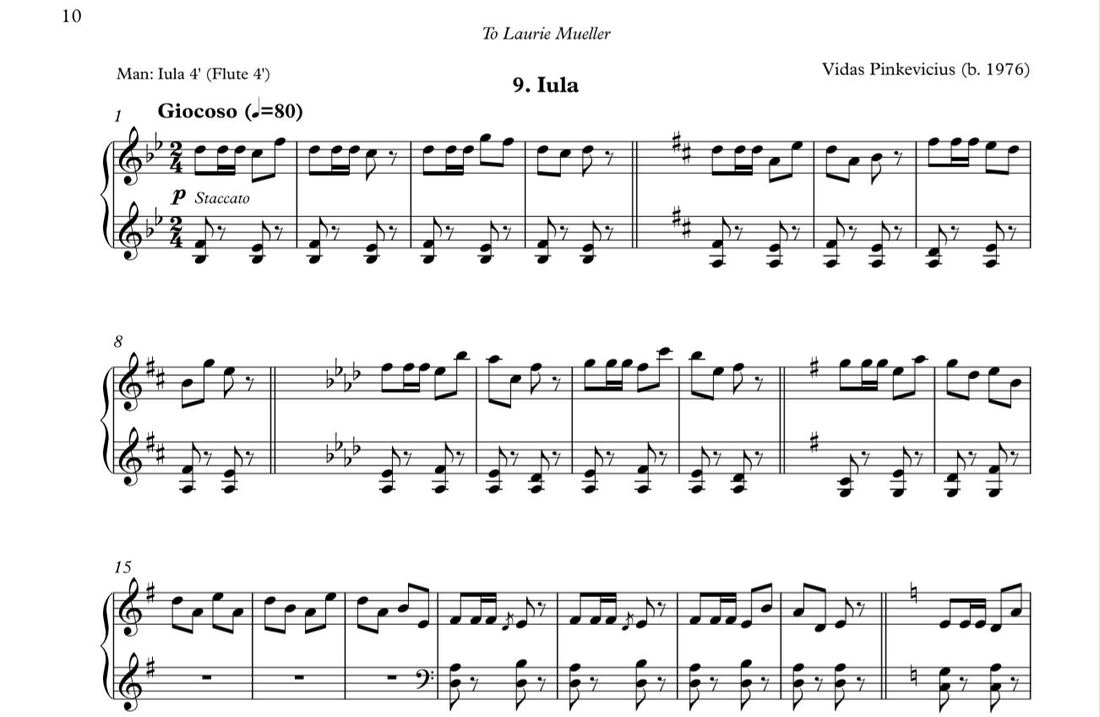
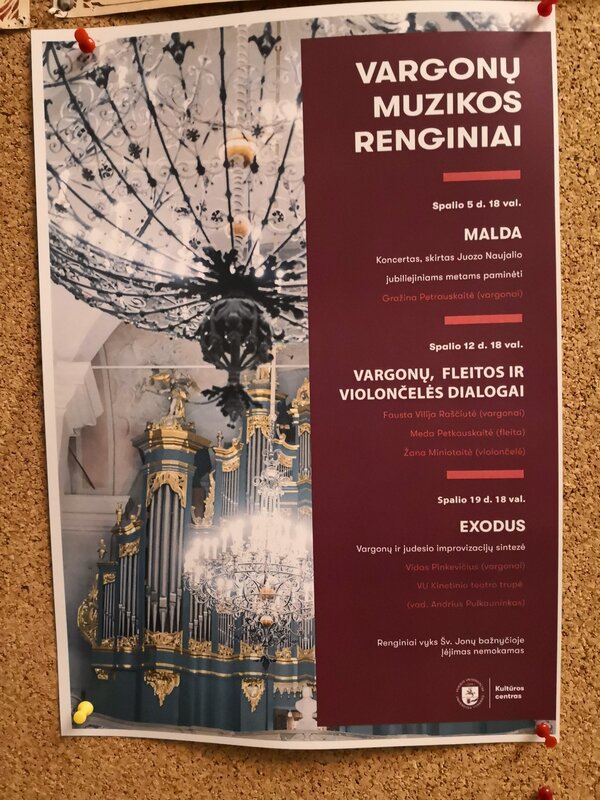

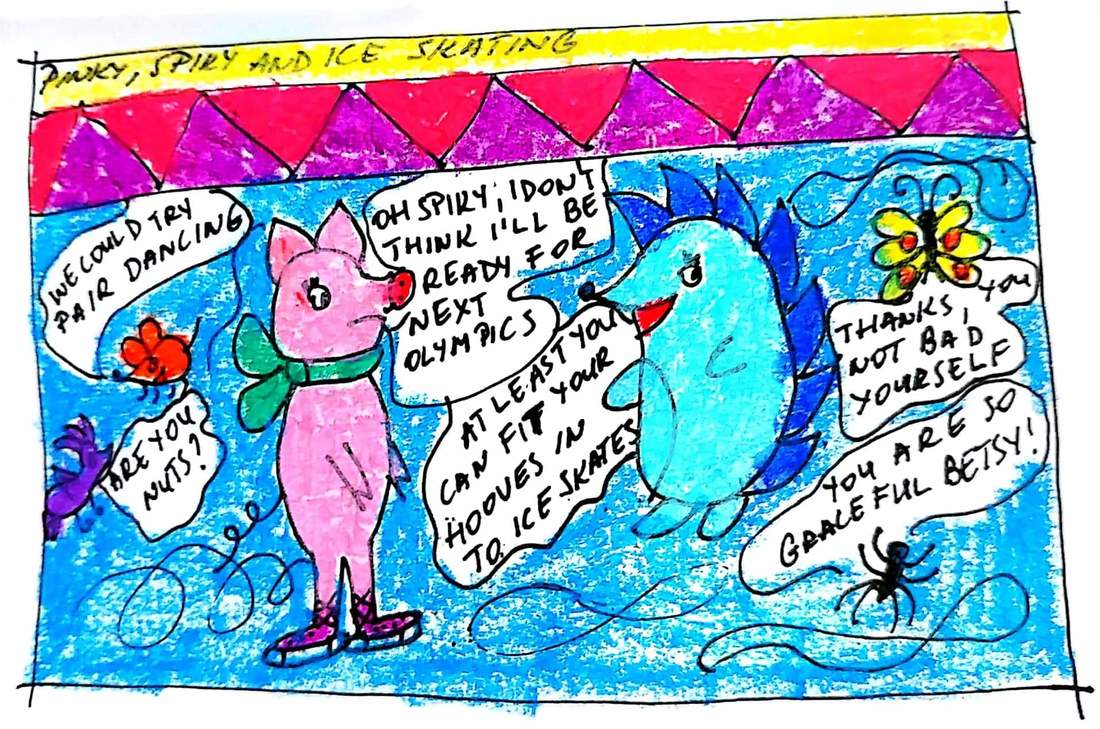
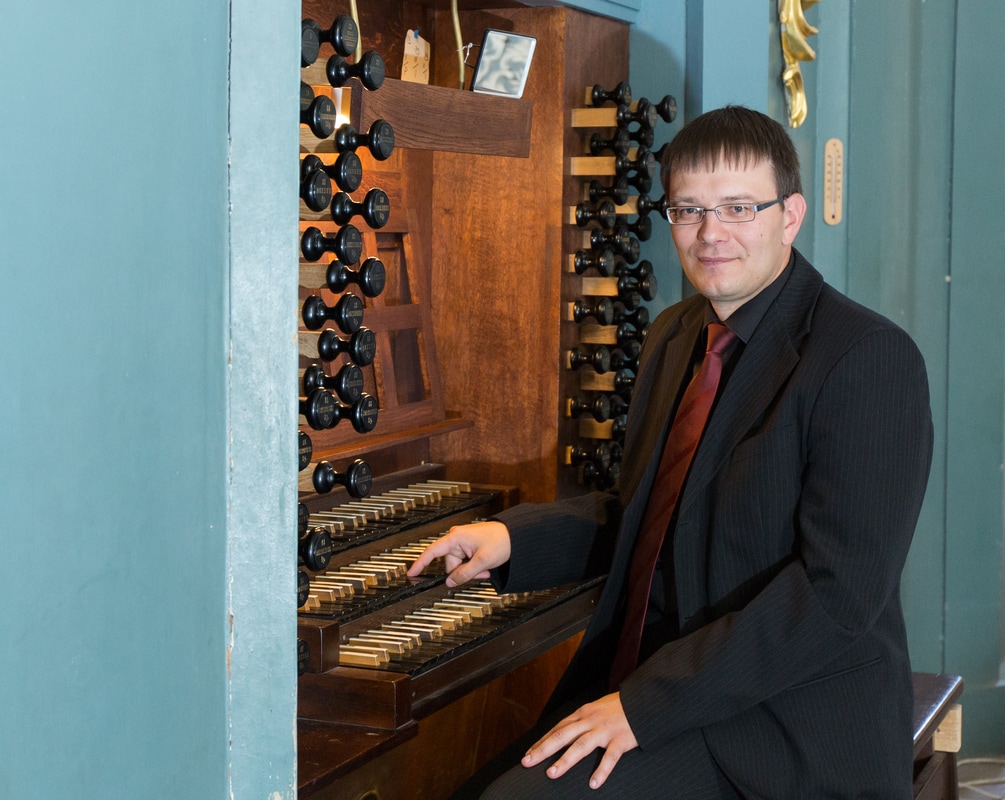
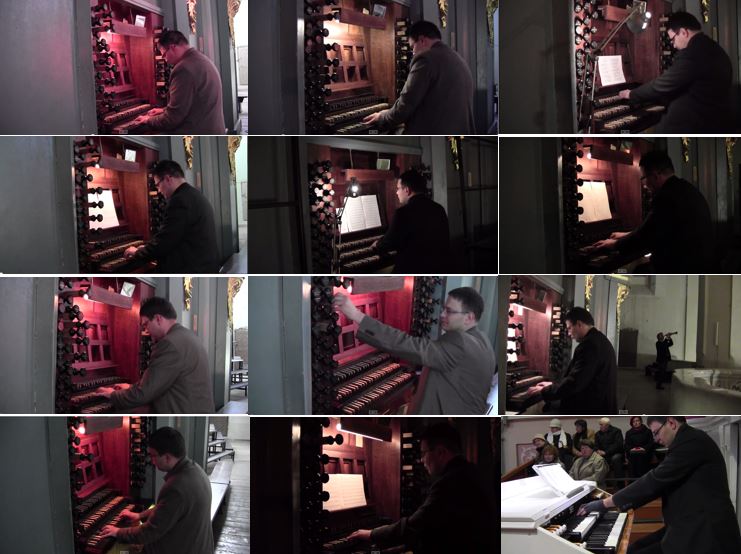



 RSS Feed
RSS Feed